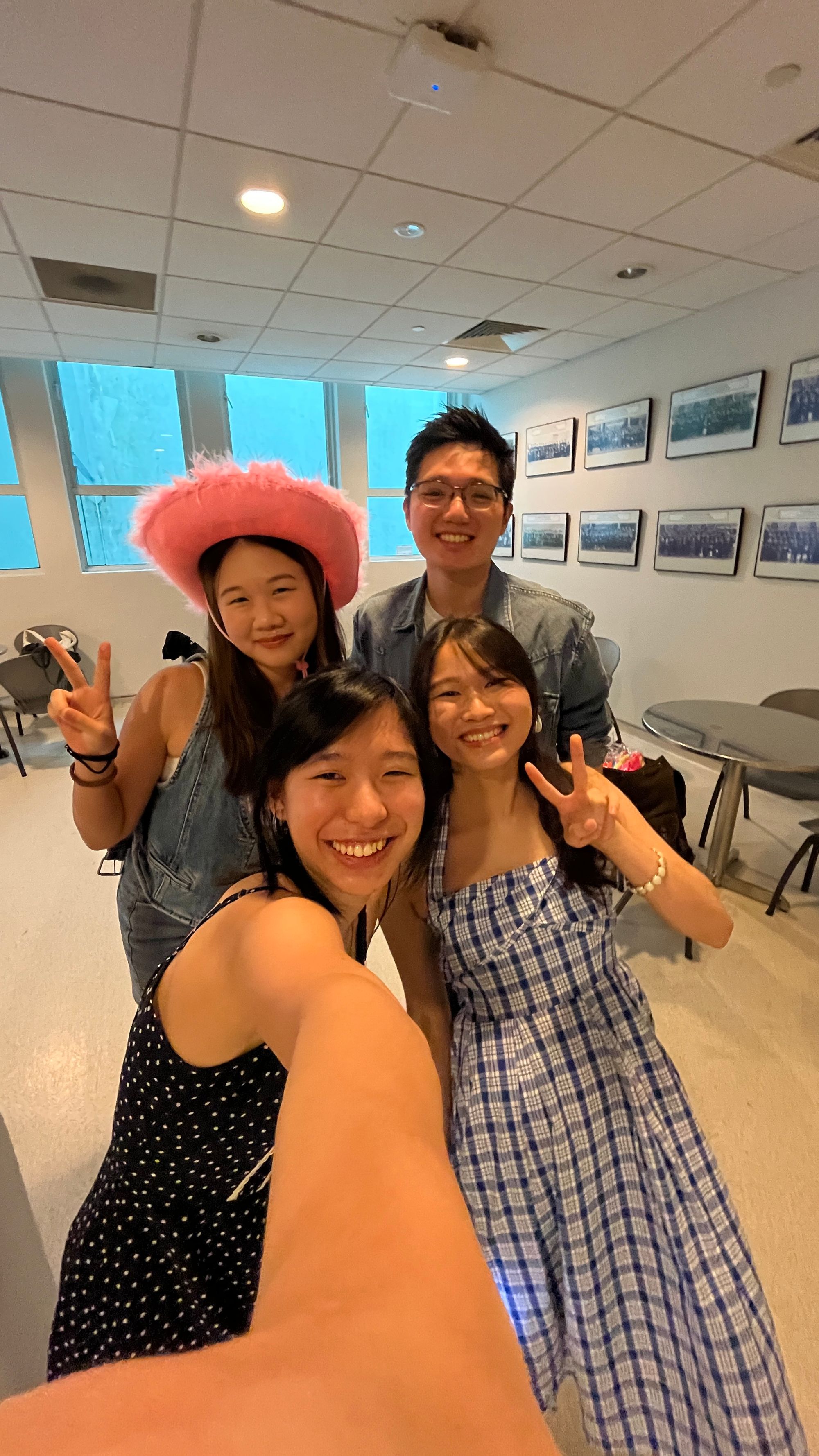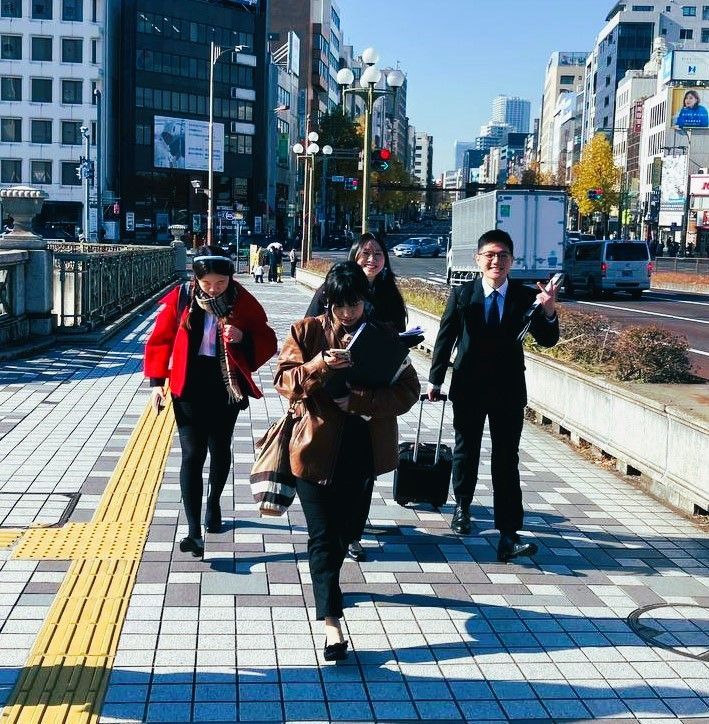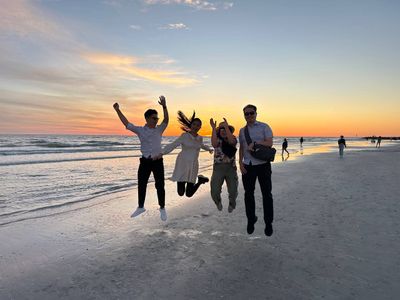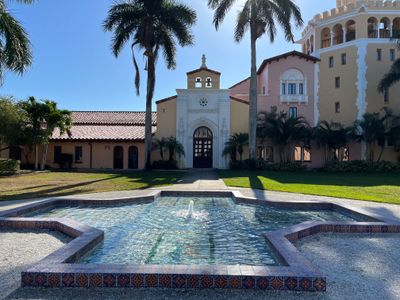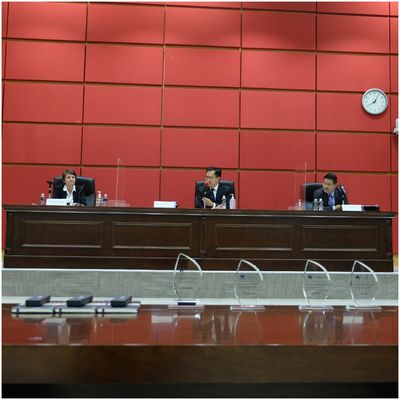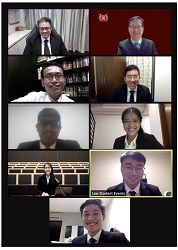In 2023, 4 NUS Students decided to compete in a Japanese-language mooting and negotiation competition.
INC Sophia is a mooting and negotiation competition held annually at Sophia University in Tokyo, consisting of both English and Japanese Language components. It is typically contested by law schools in the Asia-Pacific region. While NUS Law typically only fields teams in the English component, last year, 4 students decided to take on the unique and somewhat insane challenge of competing in Japanese as well.
Their experience, I think, highlights the capacity of us as students to take on unique opportunities and excel in them, and perhaps makes us reconsider what success as a university student could look like. For that reason, their story is one worth telling here.
This story has been split into 2 parts for length. Read Part 2 here.
Part 1: ‘I thought she was a bald Chinese man who was into Japanese girls’
One of the great blessings of competing in INC Sophia for Kenshi Yanagisawa was that it reconnected him with his old secondary school friend, Motoki.
It was on an afternoon in September 2023, one of those that seemed to go on forever without any purpose or significance. Kenshi had been holed up deep within law school at one of the study rooms listening to an online lecture, when he suddenly received an Insta DM from Motoki, whom he had not talked to in years.
It read “Eh bro, would you be interested in joining the Japanese debate?”
That sounded interesting. At least more interesting than the lecture in front of him. Motoki had been classmates with Kenshi back when they were in Japanese language school together, before going on separate paths. Now Motoki was in Business school, and while they did not know it then, this conversation revitalised their friendship with each other.
At that time, however, Kenshi simply responded, “Is this something from your faculty or what?”
“No bro, it’s actually from YOUR faculty”, Motoki replied, before immediately sending him a 40-page Japanese problem.
Kenshi skimmed the top of the document. ‘Wasn’t this INC Sophia, but why is it in Japanese?’ he thought.
Kenshi had known INC Sophia to be something of a ‘starter-competition’. Typically reserved only for NUS first-year students, it pitted them against predominantly Japanese universities, with the odd-smattering of other teams from Australia and other Asian countries. It was organised annually by Sophia University in Tokyo in late November or December. It was also a competition that NUS did very well in—in the 7 times that it competed, it placed every single time, won outright 3 times, scored 2nd place in 2, and had gotten 3rd in the latest edition, not to mention the numerous individual awards that had become commonplace for the NUS team.
While NUS Law students are, and are expected to be, a very talented bunch, its consistently strong showing might also be partially attributed to the fact that it only sent English-language teams and were going up predominantly against Japanese students competing in their second language.
2023 however, was going to be different.
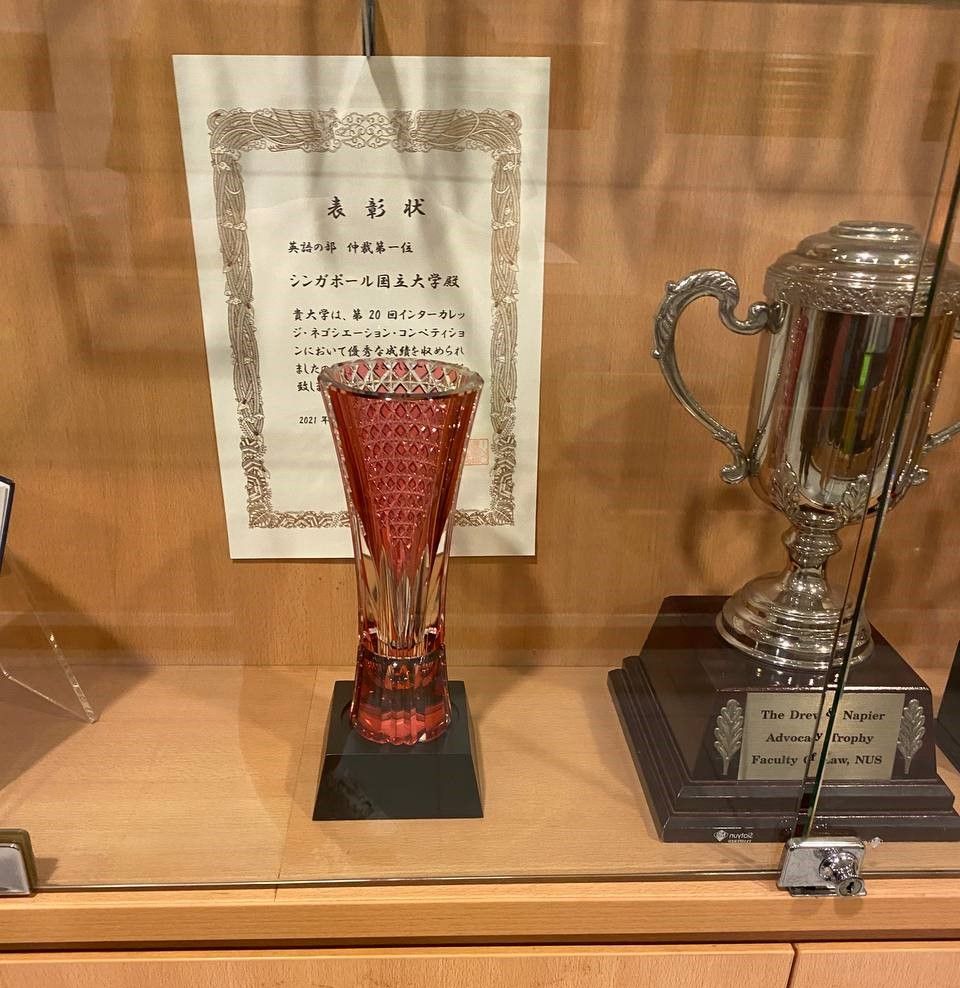
有志募集中 [Recruiting Members]?
I had pitched the idea myself, in a mala-hotpot shop of all places, during a post-competition celebratory lunch for ICC Australia, a mediation competition. We had done much better than we expected, so it was one of those afternoons where everything felt possible.
“We have so many smart people in law school that can speak Japanese. Why not we send a Japanese-speaking team this year? I’m sure we would do well,” I said.
I had competed in INC Sophia several years ago, so it was close to my heart. I assumed—wrongly, as it turned out—that because NUS English teams could consistently do well, there would be no problem in Japanese too.
Chang Li-Ann, who was my teammate, looked at me funny. She had recently been newly appointed as Vice-President of the Collaborative Dispute Resolution Club (CDRC), the CCA which organised these sorts of competitions, and she cut a no-nonsense figure. Meticulous, studious, and by-the-book, she surprised me when she responded positively. She had someone in mind that might be interested, she told me.
That someone was Karen Lee, a Year 2 student. She and Li-Ann had been friends since primary school, but they were complete opposites in personality. Karen was spontaneous, exuberant, and full of chaotic energy. Her Telegram handle was ‘Zhou Yan’, her favourite Chinese rapper, and her only profile picture was of said rapper, providing no indication as to her actual identity.
“If Li-Ann and I had first met in law school we would not have been friends,” Karen told me.
When Li-Ann asked her if she would be interested in joining the Japanese-language INC Sophia— a big decision that she would hesitate to make, weighing the pros and cons of joining, the potential costs to one’s studies that might entail, etc—Karen agreed immediately.
Given Karen’s enthusiasm, Li-Ann tasked her with finding a team of at least four students with the requisite Japanese proficiency to sign up, and a coach who could guide them. Only if they could be persuaded to sign up, would the team be sent.

Karen got to work. She first rang up Phyllis Loh, who had mentioned that she was learning Japanese during Burton Ong’s contracts picnic a year ago. Karen had made a mental note of it back then, and now she hoped that she had found a kindred spirit.
For her part, Phyllis was raring to do something interesting in law school and the idea of competing in Japanese sounded like a good fit. She had taken a gap year in the previous year, partly to self-study Japanese, although that meant that she would be participating in a Japanese moot as a fresher in her first semester.
Karen knew this might be a potential concern, but she brushed those concerns aside. She was just glad that she could find someone to join her team. She planned to organise an audition afterward anyway, based on Japanese language ability, to sieve out participants.
Next, they had to find a coach. Karen had been a research assistant for Prof Samantha Tang. It happened that her husband, Prof Alan Koh (a Business Law professor at NTU) was something of a Japanese expert. Prof Alan did legal research in Japanese for a living and was largely professionally fluent in it. Both he and Prof Samantha often travelled to Japan to give lectures for Japanese universities, and he worked behind the scenes with NUS Law to develop academic exchanges with universities in Japan.
When Karen came to them to ask them to be their coach, they thought that it was a crazy idea—but just crazy enough to give it a try. In truth, Prof Alan was also simply looking for an excuse to travel to Japan with his wife in December, and this chance to reconnect with some of his Japanese academic counterparts was as good as any.
However, Karen started running into trouble finding people to sign up for her project. As the veritable Nick Fury of the competition, she was committed to making this competition happen. She called up friends, acquaintances, and soon, any student that was rumoured to understand any Japanese. She organised them into a Telegram group, and tried to convince them to sign up for the competition. Most, however, baulked at the commitment that was required, or simply were not confident in their Japanese language skills. This was especially after they had read through the 40-page Japanese document (the same one that Kenshi received), which was the question paper for the previous year’s INC Sophia. It contained many words in business Japanese and kanji which competitors were expected to be familiar enough with to moot and do a negotiation with. A common reason for not joining was that most were unsure if they could achieve a good result in the competition, to the extent it would be worth the potential impact the competition would have on their grades.
Thus, Karen began adjusting her pitch. She started downplaying the language requirement and the amount of time one would have to put into the competition, and started emphasising the fact that one would have the chance to go to Japan for holiday since the competition coincided with the winter break.
“I was very desperate, ok?” Karen related, “I really really wanted to go for this.”
However, her strategy did not really work because a) her spiel about the low commitment and low language requirements was a flat-out lie—which was easily seen through the 40-page INC Sophia Japanese document, and b) half of law school planned to go to Japan for holiday over winter break anyway.

Eventually, Karen expanded her search to outside of law school. That was how news of INC Sophia reached Business school through Motoki, and later to Kenshi.
Kenshi thought that the idea of competing in Japanese was a fun one, and he decided that he needed an opportunity to ‘take [his] mind off law school for a bit’, so he signed up.
He did not read the 40-page document that Karen had sent him.
Phoebe Tan also first heard about INC Sophia through a friend who baulked at the commitment level. But for Phoebe, she was in her fourth year of law school and wanted to participate in at least one competition before she graduated. When she received Karen’s contact details, she hesitated. Phoebe had no idea who Karen was, all she saw of the person she was supposed to contact was Karen’s tele-handle, which was, as earlier established, represented by a balding-middle-aged Chinese rapper called ‘Zhou Yan’.
“I thought [Karen] was a bald Chinese man who was into Japanese girls,” Phoebe said, “When I saw that tele handle I was like: ‘so….cute…err’.”
After she had ascertained that Karen was not in fact looking for a Japanese waifu, she agreed to sign up. Karen made pains to establish that they would not even have to meet up and prepare all that often, “maybe just once a week several times”. Phoebe, like Kenshi, did not read the 40-page Japanese document that was sent to her. She figured that there would be an audition to filter her out if her language ability was not up to par.
In fact, there turned out to be no audition, because Karen literally could not find anyone else. And thus, it was the four of them: Phoebe, a fourth-year; Kenshi, a third-year; Karen, a second-year; and Phyllis, in her first semester of law school; formed the Japanese INC Sophia team.
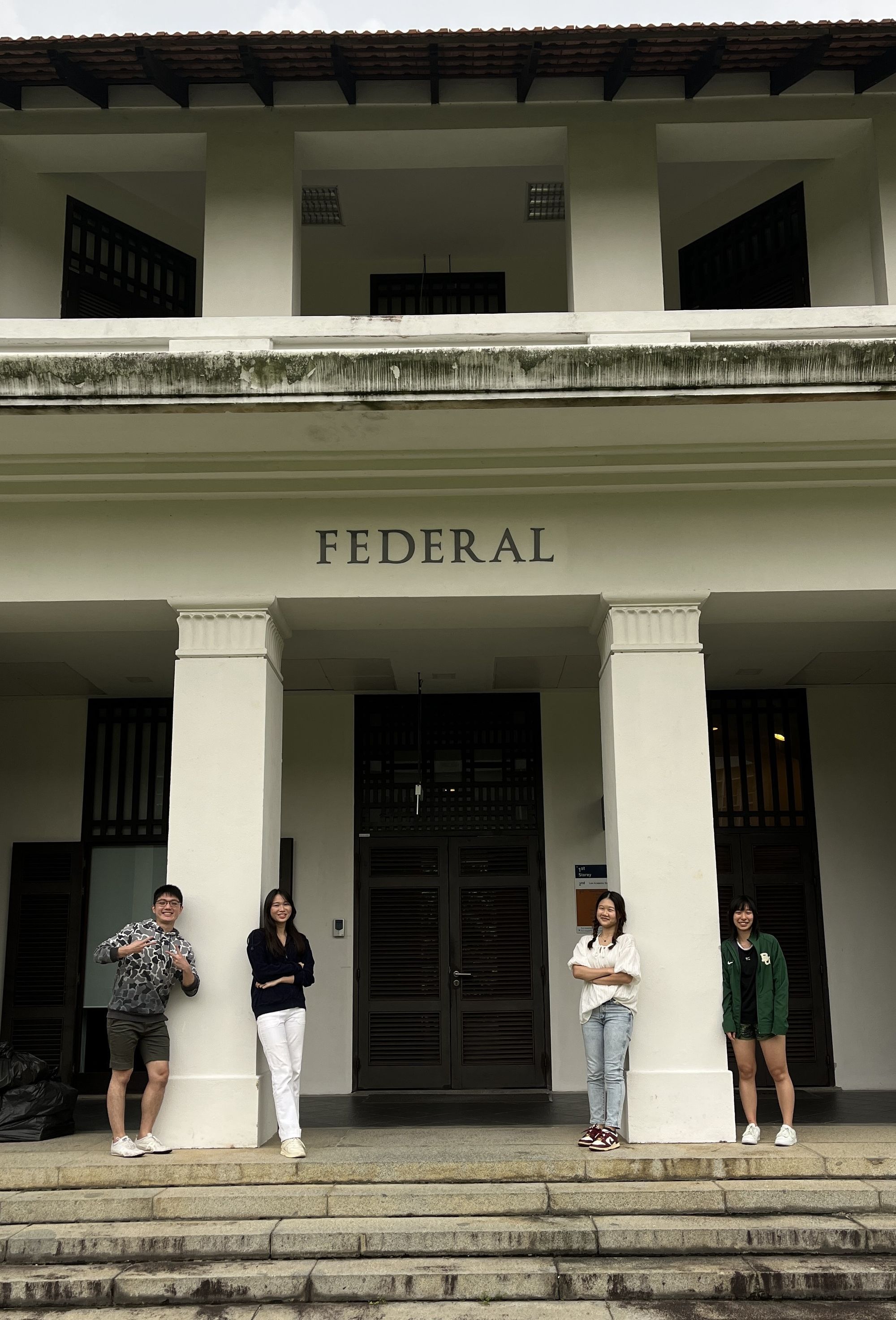
In or Out?
Phoebe’s first in-person meeting with her team left her more confused than ever. She had just come out of an exam and was slightly late, so the logical thing for Karen to do was to put a picture of Phoebe on the projector screen next to a photo of Kento Yamazaki. This was the first thing Phoebe saw when she walked in.
Also, Phoebe (still) had not realised Karen was a girl, and so her first words to her were, “Are you Phyllis?” They were then paired together for a mock negotiation round with a simple negotiation problem that Prof Alan provided, which did not go well, considering they had never done a negotiation problem before. Another warning sign came when, during the read-out of the 40-page INC Sophia Japanese problem to gauge their Japanese standards, Phyllis continually struggled to read some of the kanji characters.
But it was not all bad. Despite Phoebe’s initial apprehension, she found that she worked really well with Karen during the mock negotiation round. Phyllis, belying her inexperience, was extremely cool and collected, and crucially, they all vibed with each other.
Nevertheless, having just returned from an expensive exchange, Phoebe was unsure if she wanted to splash another wad of cash on a trip to Japan in December with a bunch of people she had just met. Given that INC Sophia was being held in a hybrid format, she and Phyllis decided that they were going to compete online from Singapore, while Kenshi and Karen would travel in person. Kenshi, also not being close to Karen, planned to fly back to Singapore immediately after the competition too.
Karen was unperturbed by all this. She was satisfied that the competition was happening after all, and so she made plans to hang out with a bunch of friends afterwards. She even managed to snag a free stay with them.
Prof Alan, however, was more concerned about this situation. Team coordination would be a big issue with the team thousands of kilometres apart. All the other teams were going to be there in person, including both NUS English teams. Additionally, despite the promises by Sophia University of hybrid facilities being available, he was not convinced they would work as planned.
“I have as much confidence in Japanese universities' hybrid facilities as Japan's ability to fix its birth rates,” he related.
More importantly, Prof Alan was worried that if the team did not commit to going in-person, the high commitment level required might sway several members of the team to quit the competition. He did not say so aloud, but quietly intimated his concerns to Karen.
To sweeten the deal, Prof Alan went so far as to offer to sponsor the entire trip for the team, which took them aback. They were really grateful but declined his offer. However, his efforts did eventually convince Phyllis and Phoebe to book tickets to Japan and compete in person, although they all still planned to holiday separately afterward.
Prof Alan had thrown himself into the competition with a great deal of vigour. He acted as the team’s coach, advisor, and emotional support animal. Being the best speaker of Japanese among them, he became the team’s go-to for any help they needed in Japanese, especially when it came to translating business Japanese terms and writing their memos.
“Honestly, it’s so funny,” Karen told me, “I was supposed to be doing work for Prof Alan [as a research assistant], but in the end he ended up doing work for me. You could not pay someone to give the help Prof Alan gave us during this competition.”
His wife, Prof Sam, was also extremely proactive in providing recommendations to the team on where to stay and where to go in Japan. She often organised the logistics of her and her husband’s couple trips to Japan and was keen to impart her knowledge on a bunch of clueless twenty-somethings.
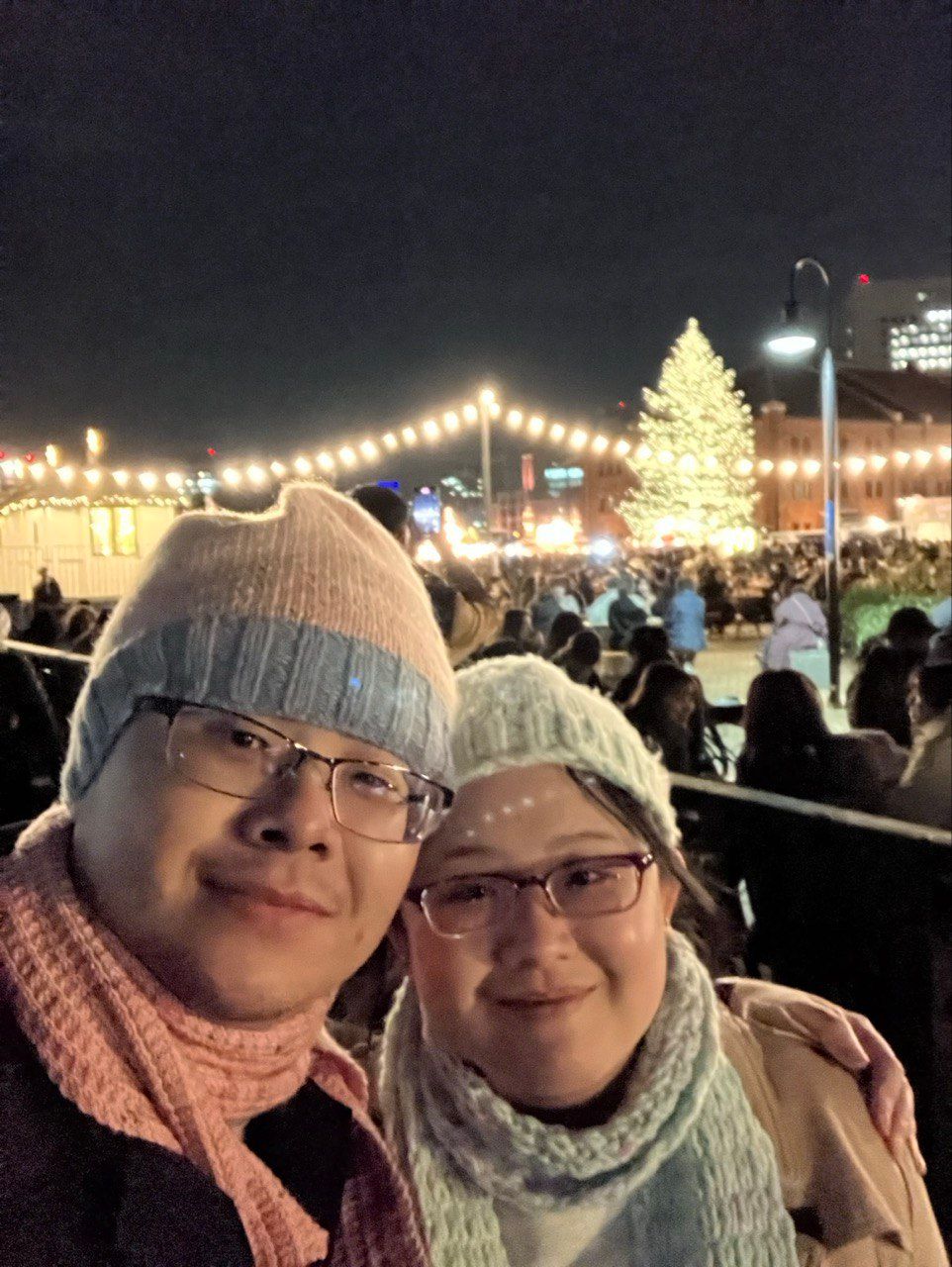
While the team did not really start out as a cohesive unit, they steadily began to hang out with each other more. They agreed to meet on Wednesdays to discuss the problem question or to work on negotiation and mooting skills. The deliverables were very substantive—with both an arbitration moot and a negotiation problem—they had to produce a 12-page arbitration memo detailing their legal arguments, a 2-page counter-memo to rebut their opponents' points, a 12-page negotiation memo to set out their negotiation plan, a pre-negotiation presentation, present their actual oral arguments for the moot, and conduct a 3-hour business negotiation, all in Japanese. Significantly, the memos were to be due in late November, smack within the exam period.
But in late September, these were all still far-off deadlines. Mostly, the team spent their time bonding over-focusing on their other classes and their shared Japanese interests. They created a dedicated Discord channel to study together and started a competition for the most hours worked, one that Phoebe eventually won.
They also created an ‘Omakase Fund’, with monetary contributions for being late or accidentally speaking English. That, in actuality, was a ruse to buy a gift for Prof Alan and Prof Sam after the competition.

Reality only began to really strike towards the end of October. Finals had begun to loom over all of them, but that was also the time when the immense amount of work needed to be done for the memo dawned upon them. Their competition problem was a highly complicated one. It dealt with a commercial contract involving the launch of a satellite into space, and they had to make arguments on technical disputes within the contract. The disputes spanned across different legal topics, many of which the team had not learnt in school, and included a difficult question on conflict of laws. Doing these topics would have been difficult enough in English, and nigh impossible in Japanese.
One thing to understand is that the Japanese language is an immensely complicated beast in translation. It is not just that the sentence structures are completely different from English—Japanese is a very honorific language. It has very specific registers to be used in formal or legal settings that were largely unknown to the team. Kenshi, being the best at Japanese amongst them, was the team’s go-to for most translations, as he pored over dictionaries and Japanese legal documents to try and learn the words he needed to use.
“I used to be rather complacent in my Japanese knowledge,” he said, “but after this experience, I realised that I really still have a very long way to go.”
For context, Kenshi, and the entire team for that matter, had Japanese skills that were far above the conversational level. Kenshi had received a formal Japanese education for 9 years, up until the equivalent of a secondary school graduate in Japan, and was also taking a Level 4000 Japanese language module at NUS. The rest of the team had also studied Japanese for years. Still, it took them about 4-5 hours to translate each paragraph of their arbitration memo.
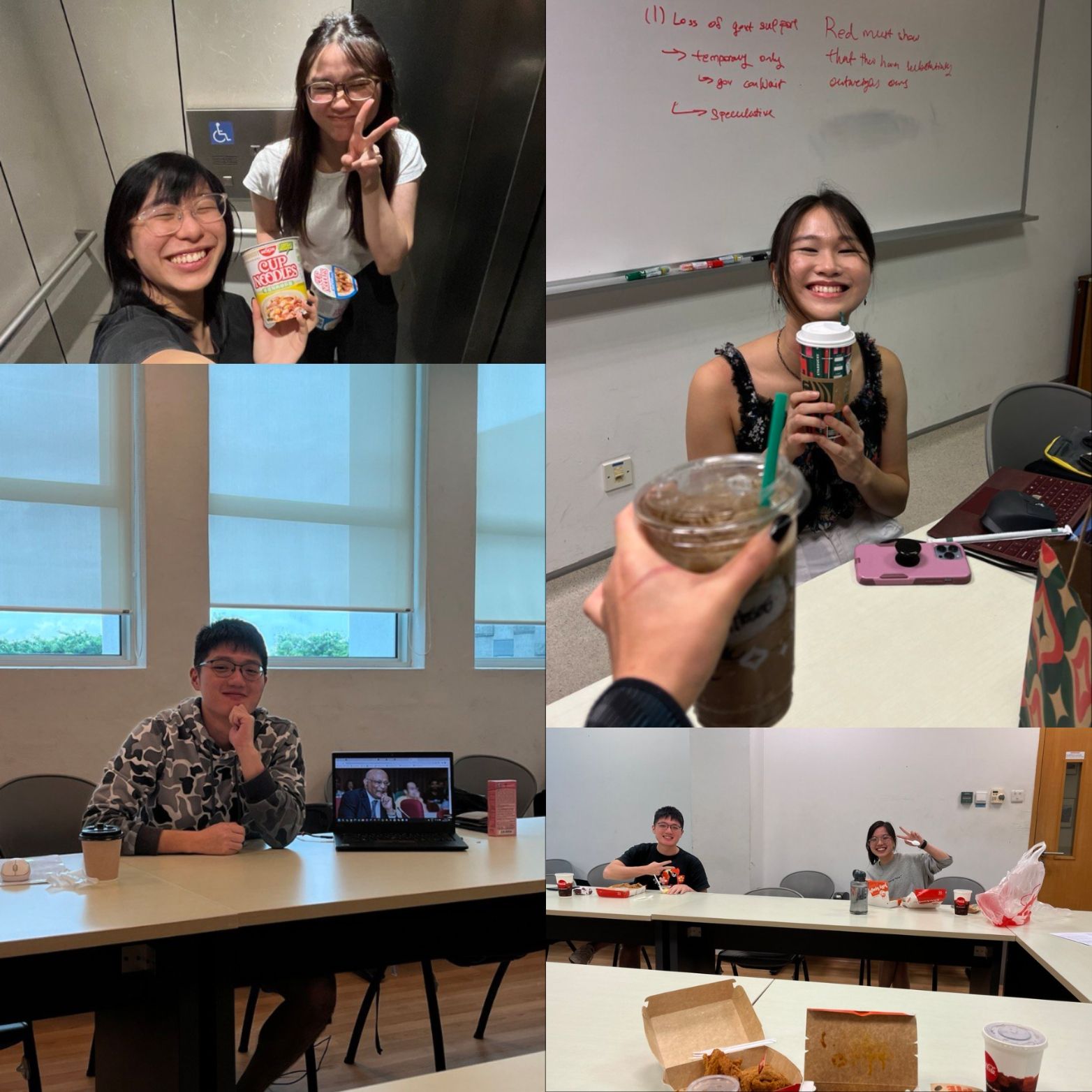
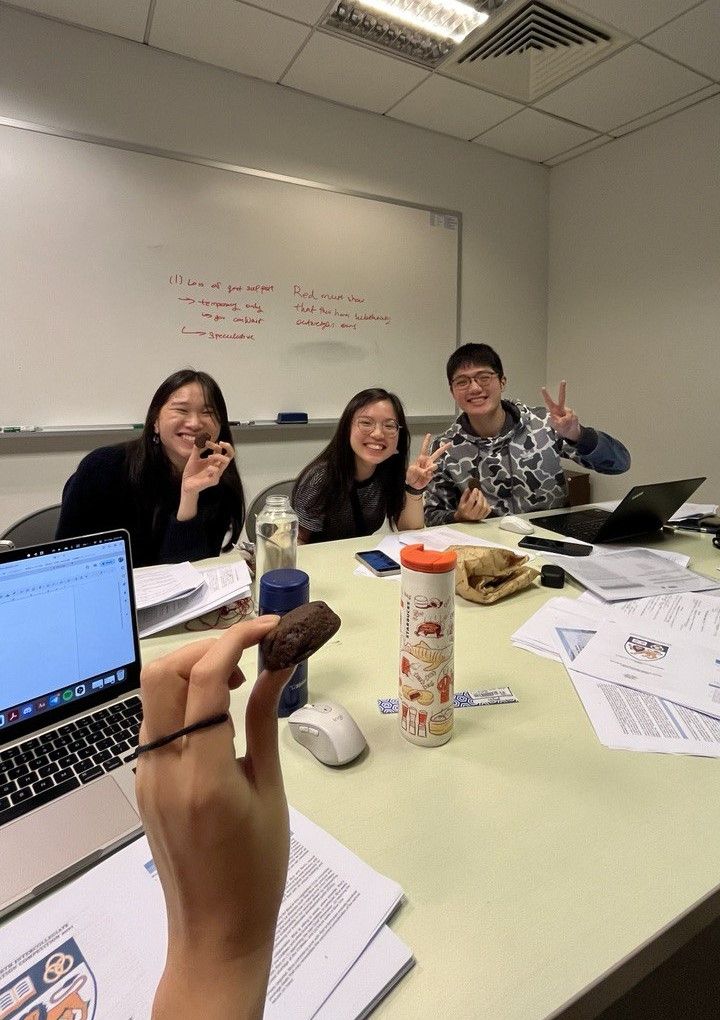
All this meant that sacrifices had to be made. First out of the window was negotiation training. Although the negotiation component was a full 50% of the competition score, it was simply a luxury the team could not afford. Next went most of their studying time for finals.
Karen in particular, worked on the competition at the expense of everything else, to the point where Li-Ann became very concerned for her. She knew that Karen had to improve her grades that semester and regretted even bringing up the idea of competing in INC Sophia to her.
But everything started falling apart.
Edging Disaster
First, Phylis experienced a rather major family emergency. For privacy reasons I cannot go into more detail here, but suffice to say, it was such that there was never a question for the rest of the team for Phyllis to have to take a step back from her INC Sophia commitments.
They knew how much harder the competition was on Phyllis as a Year 1, and the timing of this emergency had come right as the semester was kicking into high gear. With her having to deal with that, falling far behind her other academic commitments, and with her LARC viva, the following week, the rest of the team knew they needed to protect her physical and mental wellbeing. But that also meant a greater workload was shared among the three of them.
To make matters worse, INC Sophia organisers constantly made edits to the arbitration problem, at times completely changing the substantive dispute of the case. The team, who had started early to try and get a heads-up on the problem, were blindsided on multiple occasions.
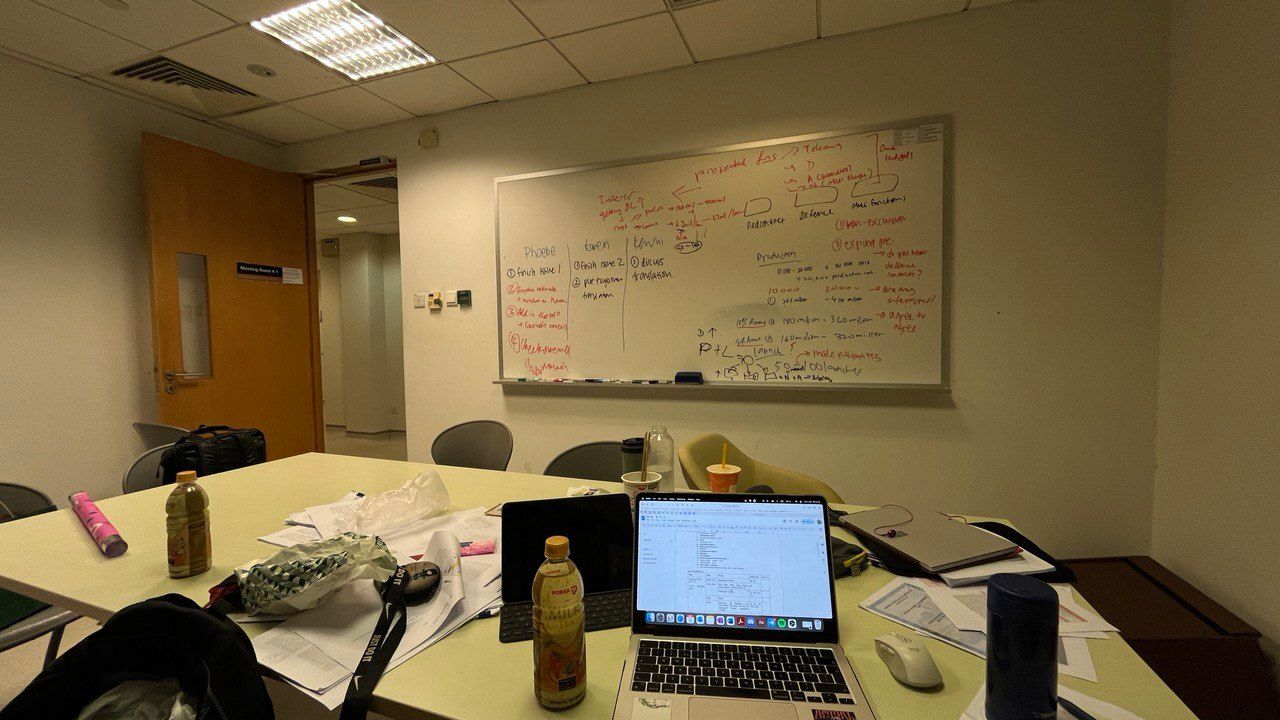

It came to the point where, two weeks before her property finals, Karen had done little to no revision for the subject. Kenshi was working on translating their arbitration memo the day before his evidence exam. The initial idea of signing up for INC Sophia to ‘escape law school’ was like a bad joke—he was not studying for his law subjects, but was spending more time than ever within the premises of law school
Blessings in Disguise
Ironically, the amount of effort that INC Sophia took up actually improved the academic grades of the INC Sophia team. For Kenshi, he credited it to the fact that working on INC Sophia kept his legal mind running in the background.
“Let’s be honest,” he said, “If I had not been doing INC Sophia, most of the extra time I had would probably have been spent chilling on YouTube videos or something like that.” He ended up doing very well for his evidence exam and other subjects, despite all the drama.
For Karen, it was because INC Sophia allowed her to make friends with a whole bunch of seniors. As the team constantly studied together, Phoebe’s good friend, Kimmie Tan, often joined them. When she saw Karen’s property exam plight, she immediately offered her notes to her. These notes turned out to be a lifeline.
“It was the best [set of] notes I had ever seen,” Karen explained, “and it was not on the muggers website.” She ended up studying for her Property Law exam over two days using that set of notes, and “got the second-best result I ever got for a core law subject”.
Beyond academic grades, INC Sophia ended up forging very strong bonds between all of the team members. It was trauma bonding at its finest.
Karen recalled that there was an instance when she and Phoebe travelled to school together at 11:30 p.m. for an all-nighter.
“We were finishing each other’s sentences throughout the cab ride,” Karen recalled. “That was when we realised just how much we get each other.”
These experiences, despite the stress and uncertainty, were the sort that could define one’s university life, and forge one’s identity. The INC Sophia Japanese team thus decided that they could stand each other after all and made the collective decision to travel together after the competition. Karen had to give up her free accommodation with her friends, and Kenshi decided to extend his trip. Phyllis, having overcome a very eventful first semester, was ready to put it all behind her. And Phoebe, despite her initial apprehension about joining, related that this competition was ‘the second-best decision I made in law school—after exchange of course’.
However, before their inevitable holiday together, they still had to get through the actual competition first. That was going to be, in their own words, ‘[a moderately] expensive, fun blaze of glory’.
